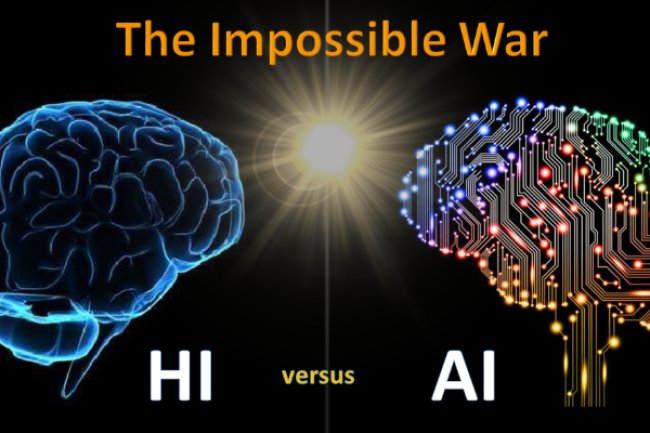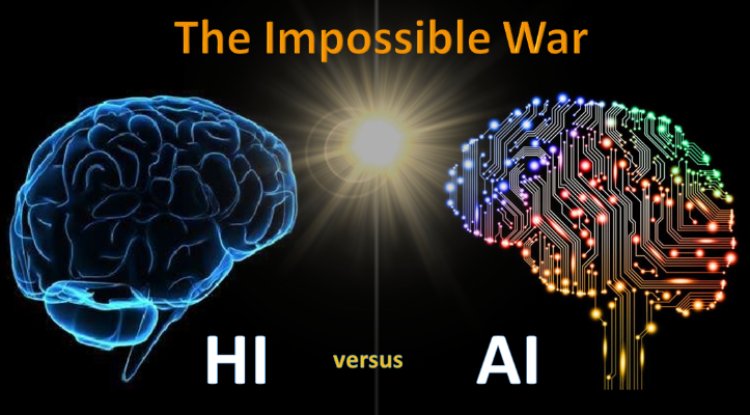The Importance of AI Safety in the Age of Ethical AI
Discover the significance of AI Safety in the era of Ethical AI. Learn about managing AI Risk, Deepfakes, and the transition to Human-Level AI responsibly.

Introduction to AI Safety
Artificial Intelligence (AI) is advancing rapidly, revolutionizing various industries and transforming the way we live and work. As AI systems become more complex and autonomous, ensuring their safety is paramount. The field of AI safety focuses on developing strategies and mechanisms to control, monitor, and mitigate potential risks associated with AI technologies.
Key Points to Consider:
Ethical Concerns:AI safety addresses ethical considerations such as bias, privacy invasion, and accountability in AI systems to prevent harm to individuals or society.
Control and Transparency:Implementing control measures and ensuring transparency in AI algorithms and decision-making processes are essential for identifying and addressing potential safety issues.
Robustness and Reliability:Developing AI systems that are robust, reliable, and able to withstand unforeseen circumstances is crucial for ensuring their safe operation.
Collaboration and Regulation:Collaboration among industry experts, policymakers, and researchers is necessary to establish guidelines and regulations that prioritize AI safety and ethical standards.
AI safety encompasses a broad range of disciplines, including computer science, ethics, psychology, and policy-making. By addressing safety concerns early in the development of AI technologies, we can harness the benefits of AI while minimizing potential risks and ensuring a safer and more ethical future for all.
Ethical Considerations in AI Development
- Ethical considerations in AI development play a crucial role in ensuring the responsible and safe deployment of artificial intelligence technologies.
- Developers need to prioritize ethical guidelines to prevent potential harm and discrimination caused by AI systems.
- Adhering to transparency and accountability in AI development is essential for fostering trust among users and stakeholders.
- Adhering to transparency and accountability in AI development is essential for fostering trust among users and stakeholders.
- Upholding privacy and data protection principles is vital to safeguard sensitive information from unauthorized access or misuse.
The Role of Regulation in AI Safety
Regulation plays a crucial role in ensuring AI systems are developed and deployed in a safe and ethical manner. Here are some key points to consider regarding the role of regulation in AI safety:
Accountability:Regulations help hold developers and organizations accountable for the AI systems they create and the decisions these systems make. By establishing clear guidelines, regulations can ensure that responsibility is assigned and that proper measures are in place to address any issues or errors that may arise.
Transparency:Regulations can mandate transparency in AI systems, requiring developers to provide explanations for how their algorithms work and how decisions are made. This transparency is essential for understanding and addressing biases, errors, and potential risks inherent in AI systems.
Ethical Standards:Regulations often encompass ethical standards that AI systems must adhere to, such as ensuring fairness, privacy, and security. These standards help protect individuals from harm and discrimination while promoting the responsible use of AI technologies.
Safety Measures:Given the global nature of AI technologies, international cooperation on regulations is essential to ensure consistency and effectiveness across borders. Collaborative efforts can help establish common standards and best practices for AI safety.
AI safety encompasses a broad range of disciplines, including computer science, ethics, psychology, and policy-making. By addressing safety concerns early in the development of AI technologies, we can harness the benefits of AI while minimizing potential risks and ensuring a safer and more ethical future for all.
International Cooperation: Given the global nature of AI technologies, international cooperation on regulations is essential to ensure consistency and effectiveness across borders. Collaborative efforts can help establish common standards and best practices for AI safety.
In conclusion, regulation is a critical component of AI safety, providing the necessary framework to promote accountability, transparency, ethical standards, safety measures, and international cooperation in the development and deployment of AI systems.
Mitigating Bias and Discrimination in AI
- AI algorithms must be carefully designed and monitored to mitigate bias and discrimination.
- Diversity and inclusion in AI development teams can help in identifying and addressing bias.
- Data used to train AI models should be representative and diverse to avoid reinforcing existing biases.
- Regular audits and testing of AI systems can help uncover and rectify discriminatory outcomes.
- Transparent documentation and reporting of AI decision-making processes are essential for accountability.
- Ethical guidelines and regulations should be established to govern the use of AI technologies.
- Continuous education and training on bias detection and mitigation are crucial for AI developers and users.
Ensuring Transparency and Accountability in AI Systems
- Transparency in AI systems is crucial for understanding how they make decisions and take actions.
- Ensuring accountability means that there is a clear chain of responsibility for AI-driven outcomes.
- Implementing transparency mechanisms such as explainability features can help make AI systems more understandable.
- Accountability frameworks can include guidelines for ethical behavior and consequences for misuse of AI technology.
- Collaboration between developers, regulators, and stakeholders is essential for establishing standards for transparency and accountability in AI.
- Transparency reports can provide insights into how AI systems operate and the impact they have on users and society.
- Accountability for AI systems should involve mechanisms for addressing errors, biases, and unintended consequences.
The Importance of Robust Security Measures in AI
- Ensuring the security of AI systems is paramount in today's technological landscape.
- Implementing robust security measures is essential to protect AI systems from cyber threats.
- Security breaches in AI can have significant consequences, including data theft, manipulation of algorithms, and potential harm to users.
- Cyber attackers target AI systems to exploit vulnerabilities and gain unauthorized access to sensitive information.
- Robust security measures help prevent unauthorized access, data breaches, and manipulation of AI algorithms.
- Transparency reports can provide insights into how AI systems operate and the impact they have on users and society.
- A proactive approach to security is necessary to stay ahead of evolving cyber threats that target AI technologies.
- Collaborating with cybersecurity experts can provide valuable insights and strategies for enhancing the security of AI systems.
- Continuous monitoring and updating of security measures are essential to adapt to changing threat landscapes and protect AI systems effectively.
The Potential Risks of Unchecked AI Development
- AI systems may exhibit biased behavior, reflecting the unconscious biases present in the data used to train them.
- Unchecked AI development could lead to job displacement on a massive scale, potentially resulting in socioeconomic inequalities.
- AI algorithms, if not properly regulated, could be exploited by malicious actors for purposes such as spreading disinformation or conducting cyber attacks
- The lack of transparency in AI decision-making processes poses a risk of eroding trust in these systems, leading to reluctance in their adoption.
- Unforeseen consequences of AI systems operating beyond human comprehension could pose significant challenges in terms of accountability and ethics.
- The rapid advancement of AI technology without adequate safeguards could lead to unforeseeable ethical dilemmas and conflicts with societal values.
- In the absence of robust AI safety measures, there is a potential for AI systems to malfunction or make errors with serious consequences.
By addressing these potential risks through proactive measures such as developing AI ethics frameworks, implementing transparent and accountable practices, and fostering collaboration between stakeholders, it is possible to steer AI development towards a safer and more ethical future.
The Ethical Responsibility of AI Developers
Developers working on AI technologies hold a significant ethical responsibility in ensuring the safety and ethical use of AI systems. This responsibility stems from the potential impact AI can have on individuals, societies, and even the global community. Here are key points highlighting the ethical responsibility of AI developers:
Human-Centric Approach:AI developers should prioritize human well-being and ensure that AI systems are designed and deployed with a focus on benefiting humanity. This involves considering the potential societal implications of AI technologies and striving to mitigate any negative consequences.
Transparency and Accountability:Developers must be transparent about how AI systems operate and the data they use. This transparency helps build trust with users and allows for accountability in cases where AI systems make mistakes or exhibit biased behavior.
Bias and Fairness: Developers need to actively address biases present in AI systems to ensure fair treatment of all individuals. By acknowledging and mitigating biases, developers can help prevent discrimination and promote equity in AI applications.
Privacy and Data Protection:AI developers must prioritize user privacy and data protection. Safeguarding sensitive information and ensuring compliance with data privacy regulations are essential aspects of upholding ethical standards in AI development.
Security and Robustness: Ensuring the security and robustness of AI systems is crucial for preventing potential harm. Developers need to implement strong security measures to protect AI systems from malicious attacks and ensure they can perform reliably in diverse environments.
By upholding these ethical principles and guidelines, AI developers can contribute to the responsible advancement of AI technologies, fostering trust among users and promoting the safe and beneficial use of AI in various domains.
AI Safety in Real-world Applications
Ensuring Ethical Decision-making:AI safety is crucial in real-world applications to ensure that AI systems make ethical decisions. Implementing safety protocols can prevent unintended harm to individuals or society arising from AI algorithms' decisions.
Avoiding Bias and Discrimination:AI safety measures are essential to mitigate bias and discrimination in AI algorithms. By implementing safety checks, developers can prevent AI systems from making discriminatory decisions based on race, gender, or other attributes.
Enhancing Robustness and Reliability:Real-world AI applications require safety measures to enhance the robustness and reliability of AI systems. Safeguards such as fail-safe mechanisms and error detection protocols can help prevent system failures and ensure consistent performance.
Promoting Transparency and Accountability:AI safety practices promote transparency and accountability in AI systems. By ensuring that AI algorithms are understandable and explainable, developers can increase public trust in AI technologies and facilitate regulatory compliance.
Addressing Security Concerns:Safety in AI applications is crucial to address security concerns such as data breaches or malicious attacks. Implementing safety measures can help protect sensitive information and prevent unauthorized access to AI systems.
Supporting Long-term Societal Impact:Prioritizing AI safety in real-world applications is essential to support the long-term societal impact of AI technologies. By proactively addressing safety concerns, developers can ensure that AI systems contribute positively to society while minimizing potential risks.
The Future of AI Safety
AI safety is a rapidly evolving field that aims to ensure the responsible development and deployment of artificial intelligence systems. As technology continues to advance, the importance of AI safety cannot be overstated. Here are some key considerations for the future of AI safety:
Ethical Frameworks:Developing robust ethical frameworks for AI will be essential in navigating complex moral dilemmas that AI systems may encounter. These frameworks can help guide decision-making processes and ensure that AI aligns with human values.
Transparency and Accountability: Ensuring transparency in AI systems is crucial for understanding how decisions are made. Accountability mechanisms must be in place to address errors or biases in AI algorithms and hold developers responsible for their creations.
Risk Mitigation:Proactively identifying and mitigating risks associated with AI systems is critical for preventing potential harms. This includes addressing issues such as data privacy, cybersecurity threats, and unintended consequences of AI decision-making.
Collaboration and Regulation:Collaboration between industry, academia, policymakers, and other stakeholders is essential for developing comprehensive AI safety standards. Regulatory frameworks must be established to ensure that AI technologies are developed and used responsibly.
Continual Learning and Adaptation:AI safety practices must evolve alongside technological advancements. Continuous learning and adaptation are necessary to address emerging challenges and ensure that AI systems remain safe and beneficial for society.
In conclusion, the future of AI safety requires a proactive approach that prioritizes ethical considerations, transparency, risk mitigation, collaboration, and continual learning. By addressing these key areas, we can work towards harnessing the full potential of AI while mitigating risks and ensuring a safe and ethical future for artificial intelligence.
What's Your Reaction?




















